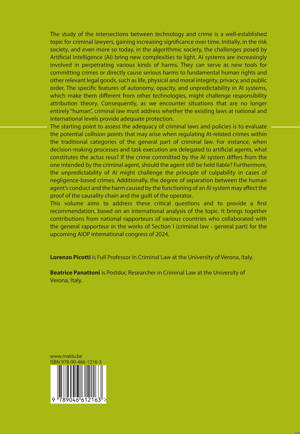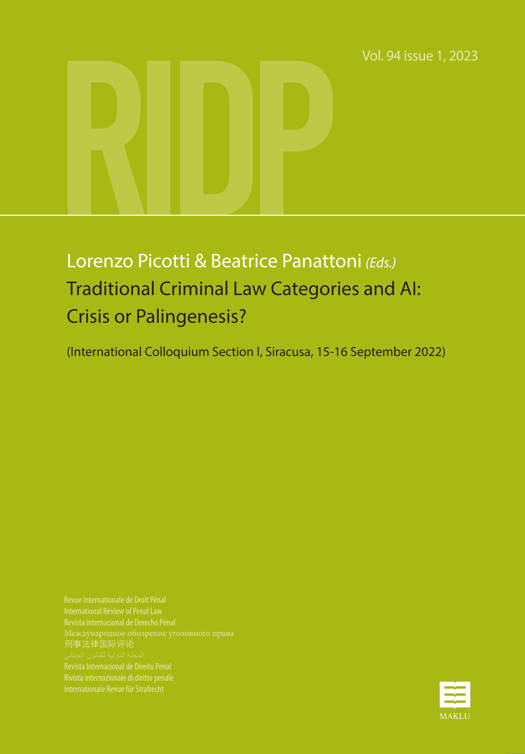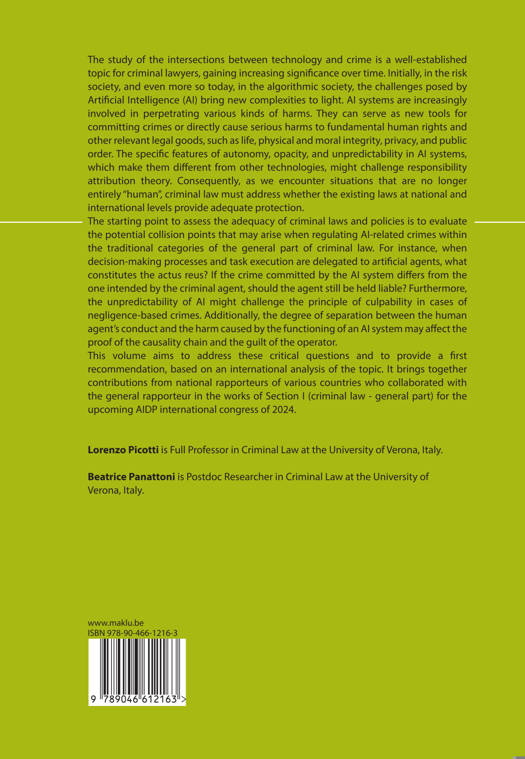
- Afhalen na 1 uur in een winkel met voorraad
- Gratis thuislevering in België vanaf € 30
- Ruim aanbod met 7 miljoen producten
- Afhalen na 1 uur in een winkel met voorraad
- Gratis thuislevering in België vanaf € 30
- Ruim aanbod met 7 miljoen producten


Traditional Criminal Law Categories and AI: Crisis or Palingenesis?
(International Colloquium Section I, Siracusa, 15-16 September 2022)
Lorenzo Picotti, Beatrice PanattoniOmschrijving
The study of the intersections between technology and crime is a well-established topic for criminal lawyers, gaining increasing significance over time. Initially, in the risk society, and even more so today, in the algorithmic society, the challenges posed by Artificial Intelligence (AI) bring new complexities to light. AI systems are increasingly involved in perpetrating various kinds of harms. They can serve as new tools for committing crimes or directly cause serious harms to fundamental human rights and other relevant legal goods, such as life, physical and moral integrity, privacy, and public order. The specific features of autonomy, opacity, and unpredictability in AI systems, which make them different from other technologies, might challenge responsibility attribution theory. Consequently, as we encounter situations that are no longer entirely “human”, criminal law must address whether the existing laws at national and international levels provide adequate protection.
The starting point to assess the adequacy of criminal laws and policies is to evaluate the potential collision points that may arise when regulating AI-related crimes within the traditional categories of the general part of criminal law. For instance, when decision-making processes and task execution are delegated to artificial agents, what constitutes the actus reus? If the crime committed by the AI system differs from the one intended by the criminal agent, should the agent still be held liable? Furthermore, the unpredictability of AI might challenge the principle of culpability in cases of negligence-based crimes. Additionally, the degree of separation between the human agent’s conduct and the harm caused by the functioning of an AI system may affect the proof of the causality chain and the guilt of the operator.
This volume aims to address these critical questions and to provide a first recommendation, based on an international analysis of the topic. It brings together contributions from national rapporteurs of various countries who collaborated with the general rapporteur in the works of Section I (criminal law - general part) for the upcoming AIDP international congress of 2024.
Lorenzo Picotti is Full Professor in Criminal Law at the University of Verona, Italy.
Beatrice Panattoni is Postdoc Researcher in Criminal Law at the University of Verona, Italy.
Specificaties
Betrokkenen
- Auteur(s):
- Uitgeverij:
Inhoud
- Aantal bladzijden:
- 385
- Taal:
- Frans, Engels
- Reeks:
Eigenschappen
- Productcode (EAN):
- 9789046612163
- Verschijningsdatum:
- 15/09/2023
- Uitvoering:
- Paperback
- Afmetingen:
- 170 mm x 240 mm

Alleen bij Standaard Boekhandel
Beoordelingen
We publiceren alleen reviews die voldoen aan de voorwaarden voor reviews. Bekijk onze voorwaarden voor reviews.










